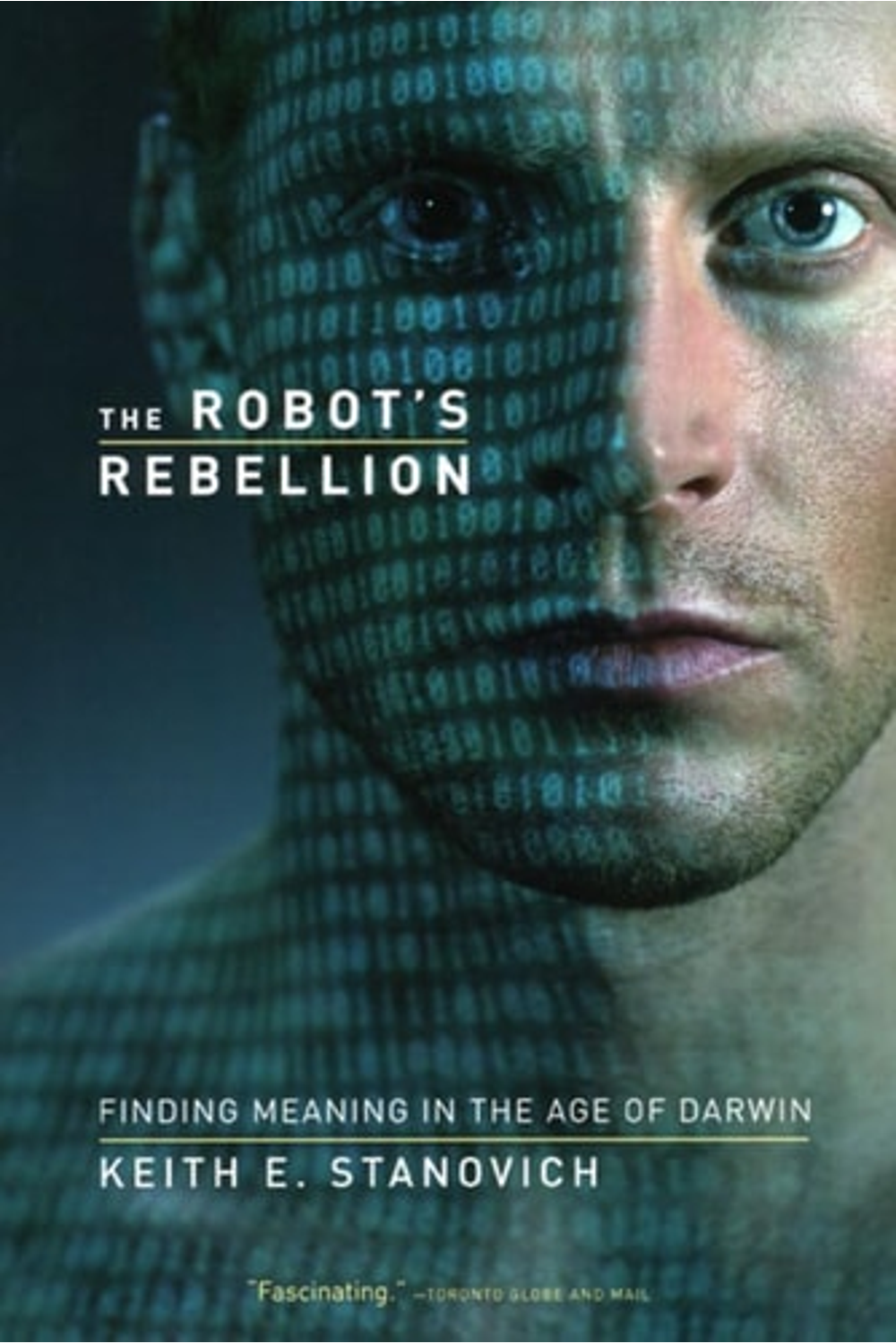Delve into the provocative world of Keith E. Stanovich’s “The Robot’s Rebellion: Finding Meaning in the Age of Darwin,” a groundbreaking exploration of human purpose in light of evolutionary biology and cognitive science. Stanovich challenges the notion, popularized by Richard Dawkins, that we are merely “survival machines” for our genes. This isn’t a fatalistic acceptance of genetic determinism, but a call to action. “The Robot’s Rebellion” offers a compelling argument for cognitive reform, equipping readers with tools to transcend their biological programming and define their own meaning. Stanovich explores the intersection of rational thought and evolutionary pressures, revealing how humans can actively shape their behavior to pursue self-determined goals. He argues that our unique capacity for rational self-determination is the key to breaking free from the limitations of our genetic inheritance. More than just a philosophical treatise, this “New edition” offers practical insights into how we can utilize our cognitive abilities to create a life of purpose and significance. Stanovich guides us through the evaluative processes of the brain, demonstrating how we can actively ascribe meaning to human existence. Discover how to harness the power of rational thought to overcome the “selfish gene” and forge a path towards a more meaningful and autonomous future. A must-read for those seeking to understand the human condition in the modern age, blending insights from psychology, philosophy, and evolutionary theory. Published by the University of Chicago Press, this paperback promises a thought-provoking journey toward reclaiming your humanity.
The Robot’s Rebellion: Finding Meaning in the Age of Darwin
23,48 $
In stock
The idea that we might be robots is no longer the stuff of science fiction; decades of research in evolutionary biology and cognitive science have led many esteemed scientists to the conclusion that, according to the precepts of universal Darwinism, humans are merely the hosts for two replicators (genes and memes) that have no interest in us except as conduits for replication. Richard Dawkins, for example, jolted us into realizing that we are just survival mechanisms for our own genes, sophisticated robots in service of huge colonies of replicators to whom concepts of rationality, intelligence, agency, and even the human soul are irrelevant.
Accepting and now forcefully responding to this decentering and disturbing idea, Keith Stanovich here provides the tools for the “robot’s rebellion,” a program of cognitive reform necessary to advance human interests over the limited interest of the replicators and define our own autonomous goals as individual human beings. He shows how concepts of rational thinking from cognitive science interact with the logic of evolution to create opportunities for humans to structure their behavior to serve their own ends. These evaluative activities of the brain, he argues, fulfill the need that we have to ascribe significance to human life.
We may well be robots, but we are the only robots who have discovered that fact. Only by recognizing ourselves as such, argues Stanovich, can we begin to construct a concept of self based on what is truly singular about humans: that they gain control of their lives in a way unique among life forms on Earththrough rational self-determination.
| Authors | |
|---|---|
| Binding | |
| Condition | |
| ISBN-10 | 0226771253 |
| ISBN-13 | 9780226771250 |
| Language | |
| Pages | 374 |
| Publisher | |
| Year published | |
| Weight | 567 |
| Edition | New edition |
Related products
- Additional information
- Currencies
- USD – United States dollar
- EUR – Euro
- GBP – Pound sterling
- CNY – Chinese yuan
- BRL – Brazilian real
- MXN – Mexican peso
- JPY – Japanese yen
- PHP – Philippine peso
- THB – Thai baht
- PLN – Polish złoty
- CAD – Canadian dollar
- MYR – Malaysian ringgit
- AUD – Australian dollar
- TWD – New Taiwan dollar
- CZK – Czech koruna
- SEK – Swedish krona
- HUF – Hungarian forint
- ILS – Israeli new shekel
- CHF – Swiss franc
- HKD – Hong Kong dollar
- DKK – Danish krone
- SGD – Singapore dollar
- NOK – Norwegian krone
- NZD – New Zealand dollar





